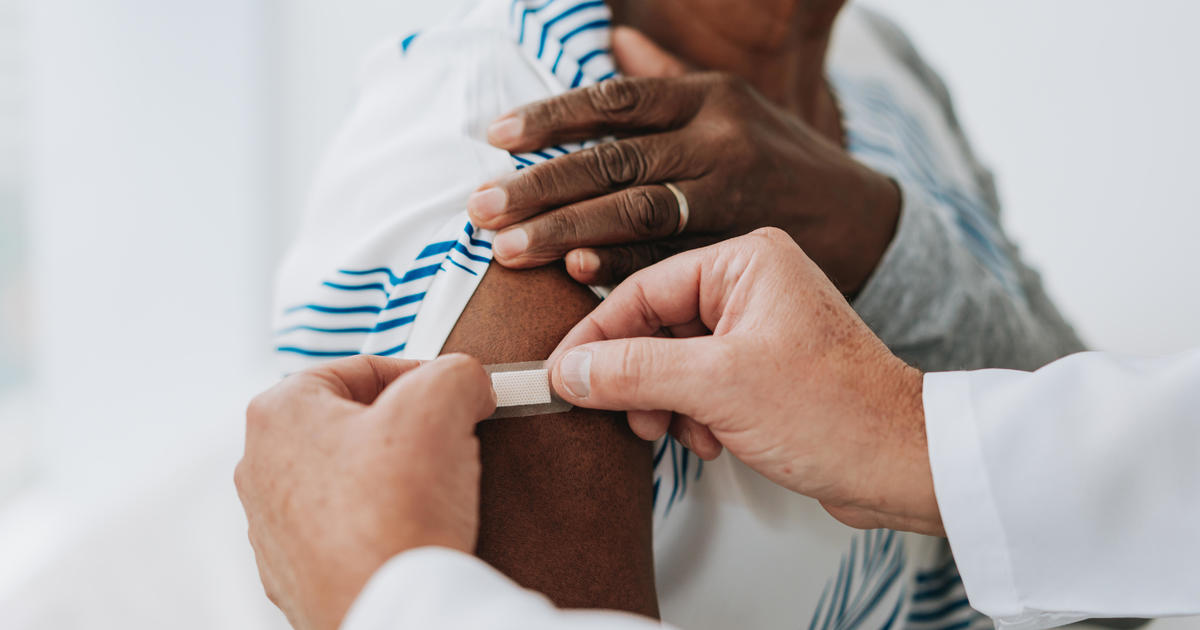CDC Updates Guidance on Second COVID Vaccine Dose Recommendations
CDC’s Latest COVID Vaccine Recommendations Simplified
The COVID-19 pandemic has been a rollercoaster ride. Each twist and turn seems to come with new information, new protocols, and sometimes, a new dose of confusion. Just when you think you’ve got a handle on things, the Centers for Disease Control and Prevention (CDC) drops an update that prompts everyone to reassess their plans for vaccination. Recently, the CDC made important updates to their guidance regarding second doses of the COVID vaccine. Buckle up, because we’re diving into the details!
Why the Update?
First off, it’s essential to understand that guidelines are updated for a reason. As more is learned about COVID-19 and its variants, health organizations like the CDC continuously review and enhance their recommendations to ensure public health safety. So, what prompted this latest update? Factors include:
- Emerging Variants: New COVID strains can affect how effective vaccines are. By tweaking doses and timings, health authorities hope to maximize immunity.
- Vaccine Efficacy: New data about how different vaccines perform, especially after the second dose, play an integral role.
- Public Health Context: As communities begin to reopen, the CDC aims to ensure that a sufficient percentage of the population is protected.
Key Highlights From the Updated Guidelines
The CDC has made some adjustments that can impact your vaccination journey. Here’s what you need to know:
Understanding Second Doses
-
Importance of Completing the Series: If you received a two-dose vaccine—like Pfizer or Moderna—completing the series with the second shot is critical. It significantly boosts your immunity against severe disease.
-
Timing of the Second Dose: The CDC now provides more explicit recommendations on the timing for your second dose. They emphasize that you should aim to complete the regimen within a specific window—often around 3 to 4 weeks after the first dose for Pfizer and Moderna.
-
Mix and Match: Understanding how different vaccines can be combined is key. The CDC supports the idea of “mixing” vaccines, meaning if you received a dose of AstraZeneca, for example, it may be fine to get a second shot of Pfizer or Moderna (depending on ongoing research and recommendations).
Temporary Side Effects
While vaccination plays a pivotal role in keeping you and your community safe, it’s normal to have some concerns about possible side effects. Here’s the good news:
-
Common Reactions: You can expect some temporary side effects, which indicate your body is building protection. Think of it like a workout for your immune system—slightly sore, but ultimately stronger.
-
What to Expect: After your second dose, you might experience symptoms like:
- Fatigue
- Headaches
- Muscle pain
- Chills
These side effects are generally mild and resolve within a few days. It’s your immune system kicking into gear—so don’t fear the mild discomfort!
Community Immunity and Its Importance
Getting vaccinated isn’t just about you. It’s about community protection—a concept known as herd immunity. When enough people are vaccinated, the spread of the virus slows down, protecting those who cannot be vaccinated due to health issues.
- Have you ever heard the saying, “It takes a village”? Well, it certainly applies here. Every vaccination counts in creating a safer environment for everyone!
Vaccine Accessibility
Another vital update from the CDC is that it’s vital for communities to have equitable access to vaccines. This means targeting areas with lower vaccination rates to ensure everyone has a fair shot (pun intended) at keeping themselves and others safe.
Special Considerations
Here, the CDC has highlighted some key demographics that may have unique needs:
-
Children and Adolescents: As the vaccine is extended to younger populations, guidance will continuously evolve in line with research findings. Parents should stay informed and consult healthcare professionals when necessary.
-
Immunocompromised Individuals: These folks may require tailored advice regarding their vaccine schedule. The CDC encourages consultations with healthcare providers to find the best approach for their unique situations.
What Should You Do Next?
Feeling anxious about the latest vaccination recommendations? That’s completely natural. Here’s your game plan moving forward:
-
Stay Informed: Follow reliable sources like the CDC and WHO for the latest updates. Bookmark their pages if you have to!
-
Consult Healthcare Providers: If you have any questions or doubts about the vaccine or side effects, don’t hesitate to ask your doctor or a healthcare professional.
-
Encourage Others: Share your knowledge and encourage friends and family to stay informed and get vaccinated. Remember, every conversation matters.
- Prepare for Your Appointment: If you’re ready for your second dose, prepare for the appointment by ensuring you have your identification, vaccination card, and a comfortable outfit.
Wrap-Up: Protecting Yourself and Others
Navigating the world of vaccines can feel overwhelming, especially with constant updates from health organizations. But one thing remains clear: vaccination plays a crucial role in combating COVID-19. The CDC’s updated guidance on second vaccine doses aims to clarify and enhance the public’s approach to vaccination.
Remember, the second shot isn’t just a tick mark on your to-do list—it’s a step toward reclaiming a life free of worry and risk. If we can each do our part by getting vaccinated and encouraging others, we can look forward to a safer and healthier future.
FAQs
1. What happens if I miss my second vaccination dose?
If you miss your second dose, it’s crucial to get it as soon as possible. Consult with your healthcare provider to determine the best course of action according to the specific vaccination you’ve received.
2. Are side effects from the second dose worse than the first?
Not necessarily. While some individuals report more intense side effects after the second dose, responses can vary widely. It’s a sign your immune system is responding.
3. Do I need to get vaccinated if I’ve had COVID-19?
Yes! Natural immunity is helpful, but vaccination bolsters protection further. The CDC recommends vaccination even for those who have recovered from COVID-19.
4. Will there be more updates on vaccine guidelines?
Absolutely! The CDC and other health organizations continuously monitor data and research, leading to regular updates. Stay tuned for further information!
5. Is it safe to mix vaccines?
Current evidence suggests that mixing vaccine brands can be effective. Talk to your healthcare provider for personalized advice based on the latest studies and your health status.
In these ever-evolving times, staying informed and taking action can help us navigate through challenges together. Let’s keep the conversation going and ensure a healthier tomorrow!







